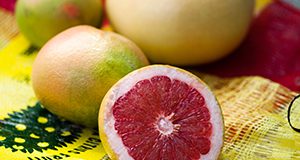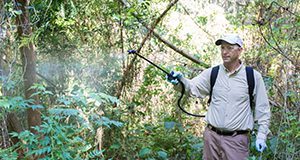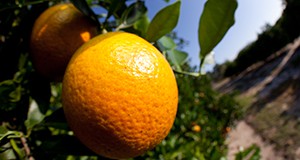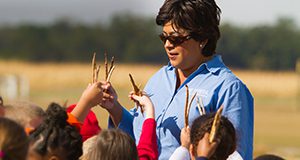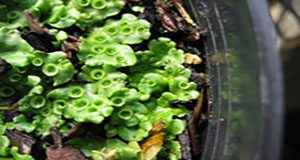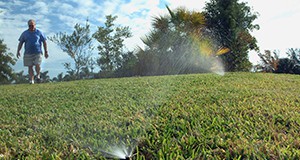
Most people agree that healthy, well-maintained turfgrass is a thing of beauty. The successful growth of turfgrass is aided by having knowledge of a few basic facts concerning the nutritional requirements of turfgrasses and the properties of fertilizer and liming materials. This four-page document will help the reader understand how soil testing may be used to more efficiently manage nutrient applications for Florida turfgrasses. Written by T.W. Shaddox and J.B. Sartain and published by the UF/IFAS Department of Soil and Water Sciences, October 2017.
http://edis.ifas.ufl.edu/SS317
Author: Sarah Chrisien
2017-2018 Florida Citrus Production Guide: Fresh Fruit Pesticide Residue Limits
Current citrus production practices often include the use of various chemicals, many of which are pesticides. Chemical residues on the fruit after harvest are a concern to regulators and the public alike because of their potential negative health effects. Therefore, the US and other countries set maximum residue limits (MRLs) on fresh produce for various chemicals. This five-page document is part of the 2017-2018 Florida Citrus Production Guide and discusses the MRLs for various chemicals used on Florida citrus. Written by Mark Ritenour and published by UF’s Horticultural Sciences Department, October 2017.
http://edis.ifas.ufl.edu/hs1301
Worker Protection Standard: Determining Your WPS Responsibilities
In 1992, the US Environmental Protection Agency (EPA) issued a comprehensive regulation called the Worker Protection Standard for Agricultural Pesticides (WPS). The EPA has made several changes to the WPS since it was fully implemented in 1995. This five-page document will address determining responsibilities under the revised WPS. Written by Frederick M. Fishel and published by UF’s Agronomy Department, September 2017.
http://edis.ifas.ufl.edu/ag418
Grove Planning and Establishment
Many factors need to be considered when preparing for new tree plantings. Careful planning and preparation is necessary to ensure success and reduce future frustrations. This three-page document describes the factors that contribute to the success of new grove establishment. Written by Mongi Zekri, Ute Albrecht, Christopher Vincent, and Tripti Vashisth and published by UF’s Horticultural Sciences Department, September 2017.
http://edis.ifas.ufl.edu/hs1302
Florida's Agritourism Laws
Agritourism combines tourism and agriculture, Florida’s two largest industries, to provide interactive, engaging, and educational experiences for the public. This four-page document describes the laws governing Florida agritourism operations. Written by Mary Beth Henry and Kathryn Stofer and published by UF’s Department of Agricultural Education and Communication, September 2017.
http://edis.ifas.ufl.edu/wc285
Biology and Management of Liverwort (Marchantia polymorpha) in Ornamental Crop Production
Liverwort is a common weed problem in production nurseries and greenhouses. This article has been written to help growers identify liverwort, understand its biology, and inform them of ways this weed can be managed in their operation. Written by Chris Marble, Marc S. Frank, Dail Laughinghouse, Shawn Steed, and Nathan Boyd, and published by UF’s Environmental Horticulture Department, September 2017.
http://edis.ifas.ufl.edu/ep542
